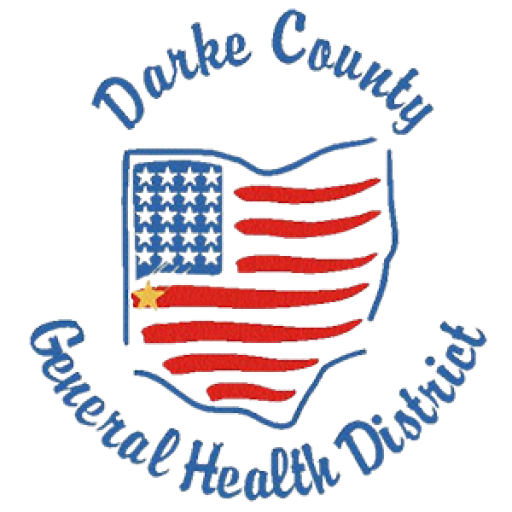Darke County Operation & Maintenance Program
Over the past couple of years, many Ohio counties have implemented a sewage Operation and Maintenance (O&M) program for septic systems. This program is intended to help reduce pollution and save homeowner money by preventing septic system failures. This is done through homeowner education and system monitoring and maintenance. This program will assure that all existing systems, no matter the type or how old they are, are being maintained properly to improve system performance and reduce nuisances.
Because of failing septic systems and impermeable clay soils, Ohio passed new sewage rules that became effective January, 2015 (OAC 3701-29). Ohio’s sewage rules were not updated since 1977 and enforcement somewhat varied from county to county so it was necessary for Ohio to pass a standard set of rules. These rules mandated an O&M program for local Health Departments and encouraged the existence of continuing programs. Therefore, every homeowner in the state of Ohio is required by law to have an Operation Permit to operate their sewage treatment system (OAC 3701-29-09(I)).
Home Sewage Treatment System Mapping Analysis Data
As of January 1st, 2015, the Ohio Department of Health’s new Sewage Treatment System Rules went into effect.
Building Sites
Anyone planning on purchasing a lot, or building on a lot, should have the site evaluated early in the process. Sewage system designs are based on site specific soil characteristics to protect ground and surface water resources, protect residents from exposure to sewage-borne disease, and reduce system failure in the future. The size, design, and cost of installing a sewage treatment system vary depending on depth to seasonal water table or bedrock, slope, soil texture, and permeability. Not all lots can be developed and served by an on-lot sewage treatment system. Limiting factors like flood plains, saturated soils, excessive slopes can make system design impossible or impractical.
A complete Building Site Evaluation Application including all supplemental documentation must be submitted prior to a site inspection. We recommend you contact the Health Department to discuss the building application process and requirements.
Small Flows
A Small Flow On-Site Sewage Treatment System is a system other than a household sewage treatment system, that treats not more than 1,000 gallons of sewage per day. The system also must not require a national pollutant discharge elimination system (NPDES) permit issued under ORC section 6111.03. Examples of SFOSTS are: Vacation rental cabins, a dwelling and an ancillary building both served by an SFOSTS where the ancillary building may be open to the public and is used by more than the residents of the dwelling, two dwellings, including arrangements such as a dwelling and a detached garage with living space, and a dwelling with a home business that may be open to the public and generates sewage in excess of the daily design flow or waste strength for an HSTS, and has no wastewater other than sewage going to the SFOSTS. Small flow systems are approved through the Ohio Environmental Protection Agency. Please contact Darke County representative Jacob Taylor at (937) 285-6096 or jacob.taylor@epa.ohio.gov
If splitting off land, and any portion is going to be less than 20 acres, the Health Department must evaluate the well and septic systems on the property prior to plat approval. More information is in the Landsplit Application. If you are splitting off a lot without an exisiting home, please use the Land Survey Evaluation. Contact the Health Department during normal business hours for more questions at 937-548-4196.
Questions regarding Planning Commission may be directed to Curtis Yount at 937-547-7381.
If requested, the Darke County Health Department will inspect the septic system and well of a property. It is not a requirement by the Health Department to have the system inspected; however, many lending institutions require such an inspection. If you are completing an inspection through the Health Department, then you must fulfill all requirements of the Health Department.
To find out more about the requirements of a home sale/refinance inspection, please see the Home Sale & Refinance Application or contact the Health Department during normal business hours.
If you are adding onto or remodeling your home you may be required to complete a septic inspection prior to obtaining your building permit. If the addition involves a bedroom, bathroom or anything that requires a plumbing permit, you are required to have the septic system evaluated.
To find out more about the requirements of the room addition/remodel inspection, please see the Home Remodel Application or contact the Health Department during normal business hours.
Existing Homes with existing systems: If you are adding on or placing a new home on your existing lot, you may need to have your septic system evaluated to determine if it is an adequate size and working properly. If you are experiencing trouble with an existing system, it may be necessary to evaluate the system to determine what corrective action may be needed. The Health Department has sewage records for existing systems since 1953 and are able to provide a copy to the homeowner. You may fill out the Sewage Repair Replacement Application to have your system evaluated.
Water Pollution Control Loan – EPA Grant Money Used for Septic System Upgrades
More Information on Sewage Treatment Systems:

